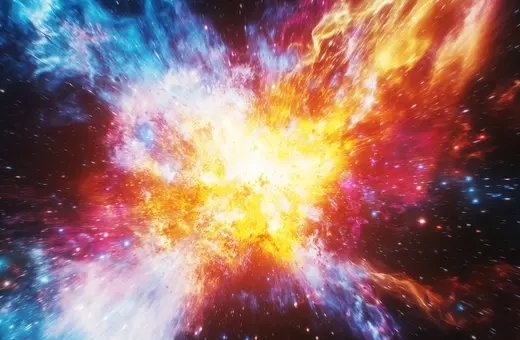Physicists simplify the universe by studying closed systems. However, philosopher of physics Karim Thébault argues that embracing the openness of physical systems can lead to a better understanding of the world. Join Karim as he outlines this exciting new research program, focusing on the possibility that open quantum systems provide a more fundamental understanding of the world, as opposed to closed systems.
Physicists break the universe down into digestible chunks. Systems whose behaviour can be described in isolation from everything else. The systems studied by physics can be as big as a galaxy cluster or as small as an electron trapped in a magnetic field. What is important is that on the relevant time scale and to the relevant degree of accuracy a system can be effectively described by equations that make references to the system on its own.
The word ‘autonomy’ was coined by the ancient Greek playwright Sophicles in his play Antigone as a concatenation of auto and nomos. With ‘auto’ meaning self and ‘nomos’ meaning law. In the play, the heroine earns the title autonomous precisely because she, rather than the King or the Gods, is the author of the laws she obeys. The same word is deployed towards a similar meaning in the context of dynamical systems in physical theory. For a system to be autonomous is for it to have laws that can be defined without reference to other systems.
___
As was pointed out by Bertrand Russell in 1903, strictly speaking no systems within the universe should be expected to be isolated, since the force of gravity is universal.
___
The concept of an autonomous physical system is usually associated with the ideas of lack of interactions with other systems and conservation of some relevant quantity. For example, we think of a pendulum swinging in a vacuum as autonomous, since it has its own law of harmonic motion, as isolated, since there are no air molecules bashing into its bob, and as conservative, since it conserves energy over time. There are, however, two important limitations to the triple association between autonomy, isolation, and conservation.
The first limitation is that the pendulum is obviously not really isolated in the sense of having no interactions with anything else. It only swings because of the its gravitational interaction with the earth. As was pointed out by Bertrand Russell in 1903, strictly speaking no systems within the universe should be expected to be isolated, since the force of gravity is universal. Thus, the idea of an autonomous system should not be conflated with that of an isolated system.
The second limitation is, perhaps, more surprising. It is not, in fact, even clear that autonomy need be associated with conservation. Most vividly, we can consider a pendulum which swings in a fluid medium as obeying a law of damped harmonic motion despite in which energy is not conserved. More generally, physics contains entire frameworks for building autonomous law-like descriptions of a system’s dynamics in which key qualities are not conserved over time. This is of particular importance in the context of quantum theory, where the theory of Open Quantum Systems provides precisely such a framework for autonomy without conservation.























Join the conversation